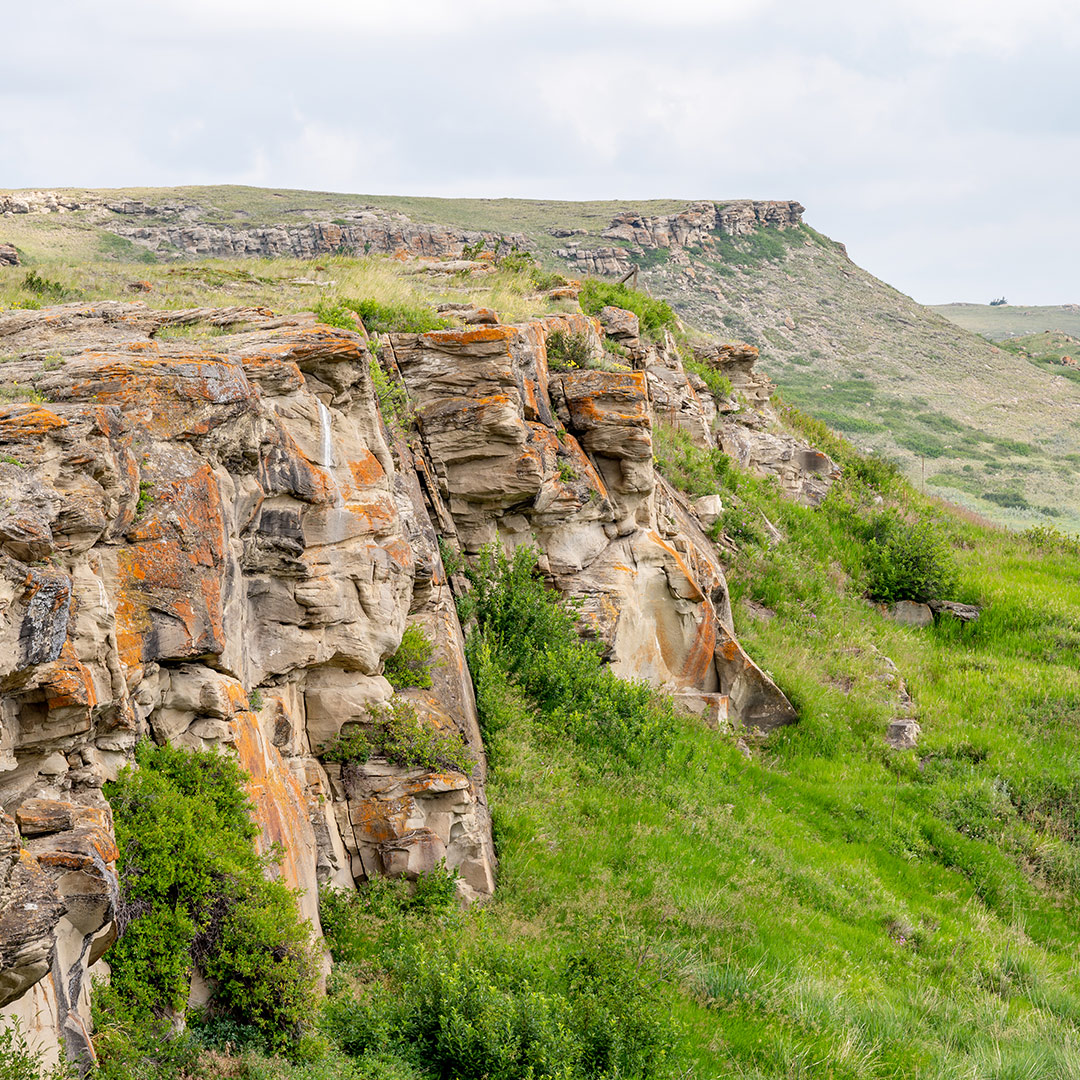Truth & Economic Reconciliation
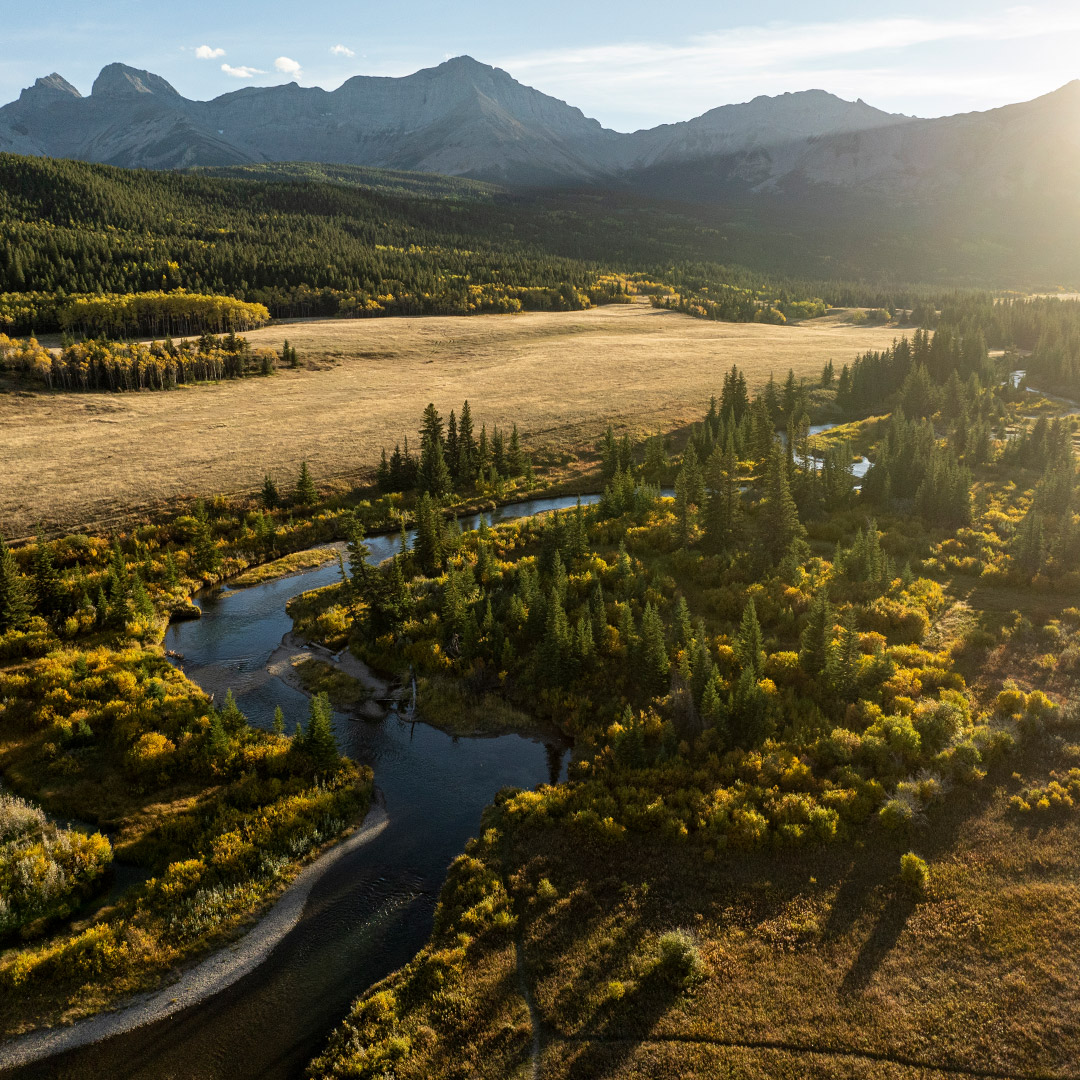
Land Acknowledgement: In the spirit of reconciliation, we acknowledge that we live, work and play on the traditional territories of the Blackfoot Confederacy, including the Siksika, Kainai, Piikani First Nations, the Tsuut’ina and the Stoney Nakoda, which includes the Chiniki, Bearspaw and Goodstoney. Calgary is also home to the Otipemisiwak Métis Government of the Métis Nation within Alberta Districts 5 and 6, and all people who make their homes in the Treaty 7 region of Southern Alberta. Calgary, and the confluence of the Bow and Elbow in particular, called Moh’kins’tsis to the Blackfoot, Guts’ists’i to the Tsuut’ina and Wîchîspa to the Stoney Nakoda, was a central trading route for Indigenous communities for centuries. This land has always been a gathering place. As the Chamber, the convenor of our business community, we vow to continue this land’s long-standing legacy of coming together, and as we seek to advance commerce in Calgary, we commit to carry forward the Indigenous values of interconnectedness, reciprocity and shared prosperity in all that we do.
Committed to supporting Indigenous success
At the Calgary Chamber of Commerce, we know that all of us have an important role to play in advancing Truth and Reconciliation in Canada.
The Truth and Reconciliation Commission of Canada’s Call to Action 92 calls on Canada’s corporate sector and business community to advance reconciliation, and we are humbly learning and expanding our work.
We are committed to using our voice to amplify Indigenous voices, celebrate achievements and progress and advocate for systemic change.
“As an organization, the Calgary Chamber of Commerce is embarking on a journey to learn the truth, support Indigenous entrepreneurs and professionals and act as a resource for our business community as they take on their own journeys.”
Pillar Partner
Truth and Reconciliation Pillar Partner
The Calgary Chamber of Commerce is proud to welcome Keyera as our new Truth and Reconciliation Pillar Partner. This partnership reflects a shared commitment to building an inclusive economy by supporting Indigenous entrepreneurs and professionals. Keyera has sponsored 25 Chamber memberships for Indigenous entrepreneurs, eliminating cost-related barriers and offering networking opportunities, advocacy support, business resources, and peer-to-peer connections.
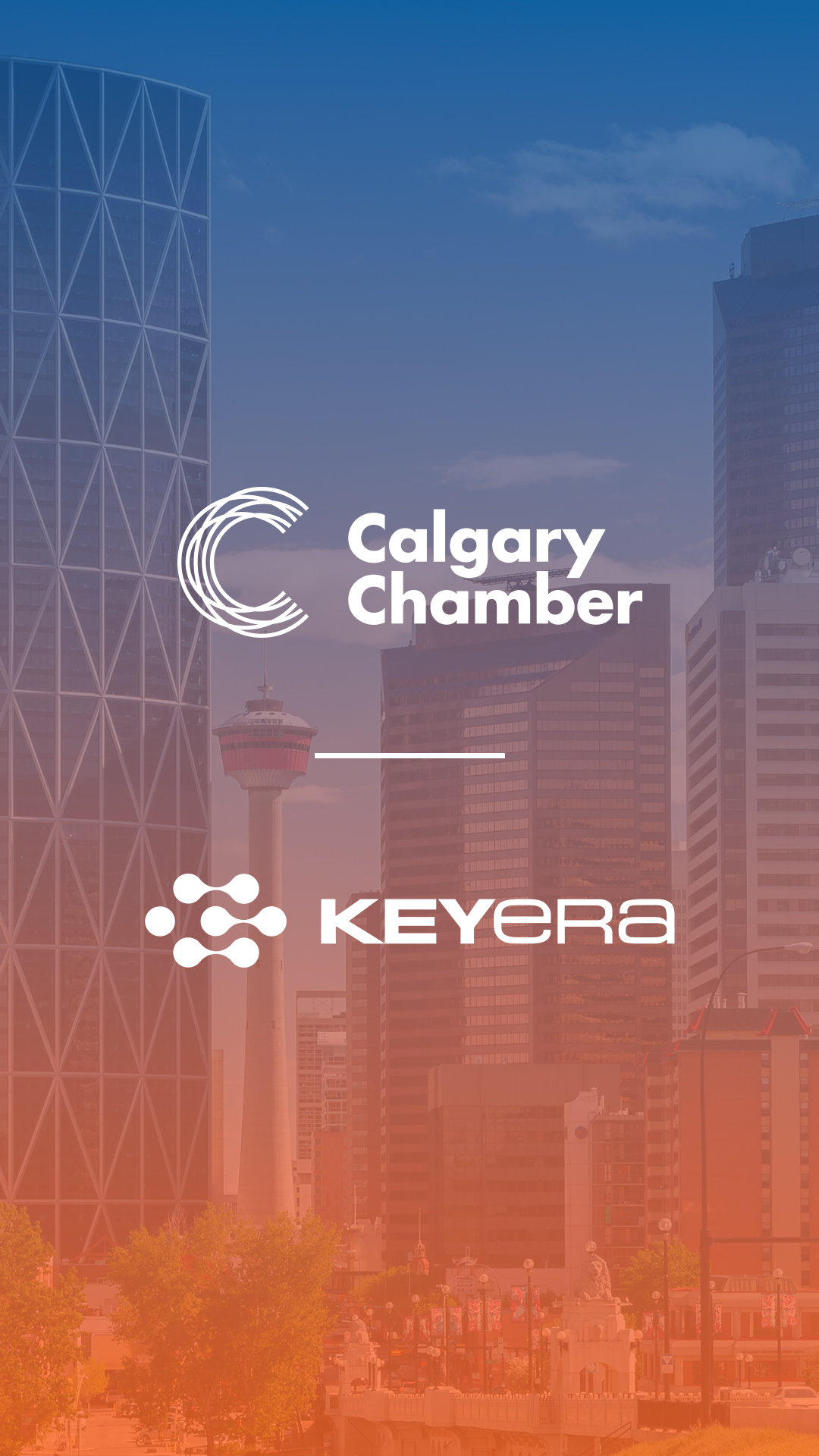
Our Truth and Economic Reconciliation Framework
To guide our ongoing work, the Calgary Chamber, in partnership with our Indigenous Advisory Circle, comprised of over 25 Elders, entrepreneurs and community leaders, has developed a Truth and Economic Reconciliation Framework.
We humbly thank the Elders, Indigenous entrepreneurs and professionals, including through our Indigenous Advisory Circle, who informed our framework over the last year and understand the Chamber’s role in addressing ongoing systemic challenges and advancing reconciliation.
The framework is grounded in truth and learning, and is focused on two key priorities:
- Supporting Indigenous people and communities by reducing barriers to the Chamber and other key business resources for Indigenous entrepreneurs.
- Ensuring the perspectives and wishes of Indigenous people and communities are fairly represented on key government policies by leveraging our platform to amplify Indigenous voices and advocate for an inclusive economy.
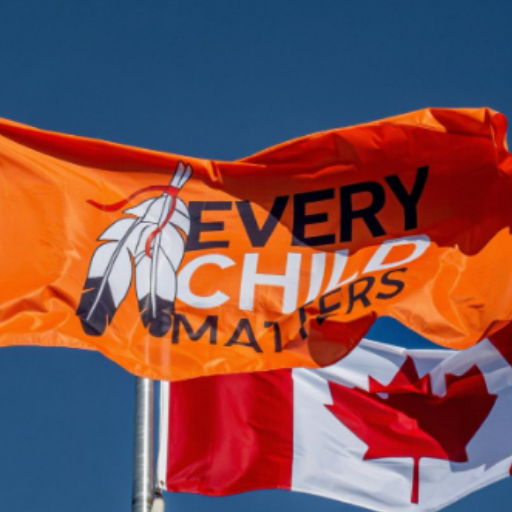
National Day for Truth and Reconciliation and Orange Shirt Day
We encourage our community to reflect on the significance of this day, wear an orange shirt and to participate in one of the local events listed below. Together, by learning, listening and participating, we can take meaningful steps towards reconciliation.
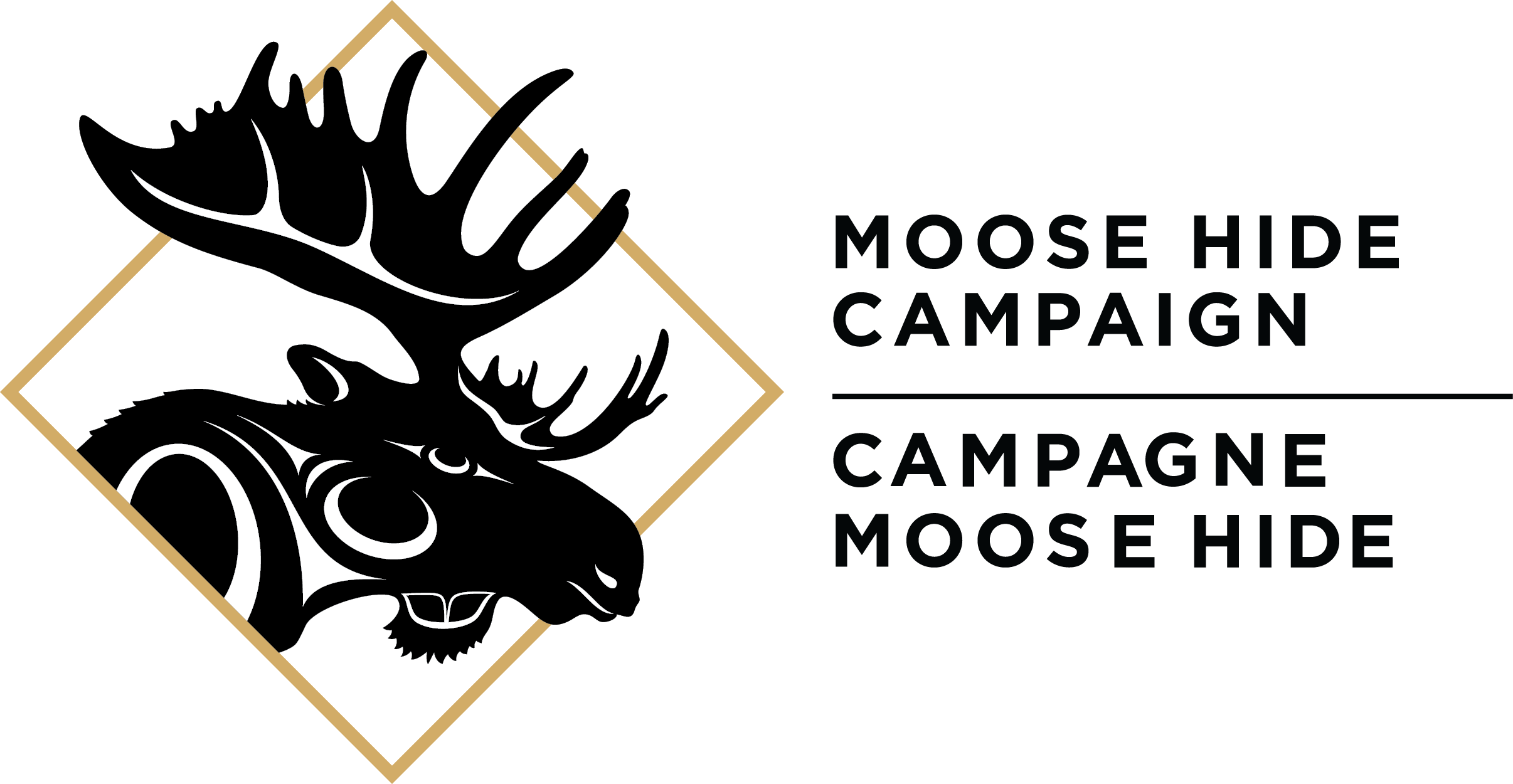
Moose Hide Campaign Day
The Moose Hide Campaign is a powerful grassroots movement dedicated to ending violence against women, children, and all those along the gender continuum. Founded in 2011 by Raven Lacerte and her father Paul during a traditional hunting trip, the campaign began with a simple yet profound act: using moose hide as a symbol of commitment to protect and respect women and children.
Calgary Chamber’s journey
The Calgary Chamber of Commerce has a long history. Dating back to 1891 and established at the confluence of the Bow and Elbow rivers, the Calgary Chamber of Commerce was established just 14 years after the signing of Treaty 7, which secured the survival of First Nations in modern southern Alberta, but at a great cost. According to the Treaty’s provisions, First Nations relinquished their traditional hunting territory in return for reserves and annual payments from the Crown, as well as the right to continue hunting and trapping in the ceded areas.
First Nations communities continued to endure a long history of systemic injustices including residential schools, land dispossession and cultural assimilation policies, which have led to profound intergenerational trauma. As the hub for commerce dating back to the late 1800s, we acknowledge that our Chamber may have contributed to the hardships of Indigenous peoples, despite not having records to fully understand our own history.
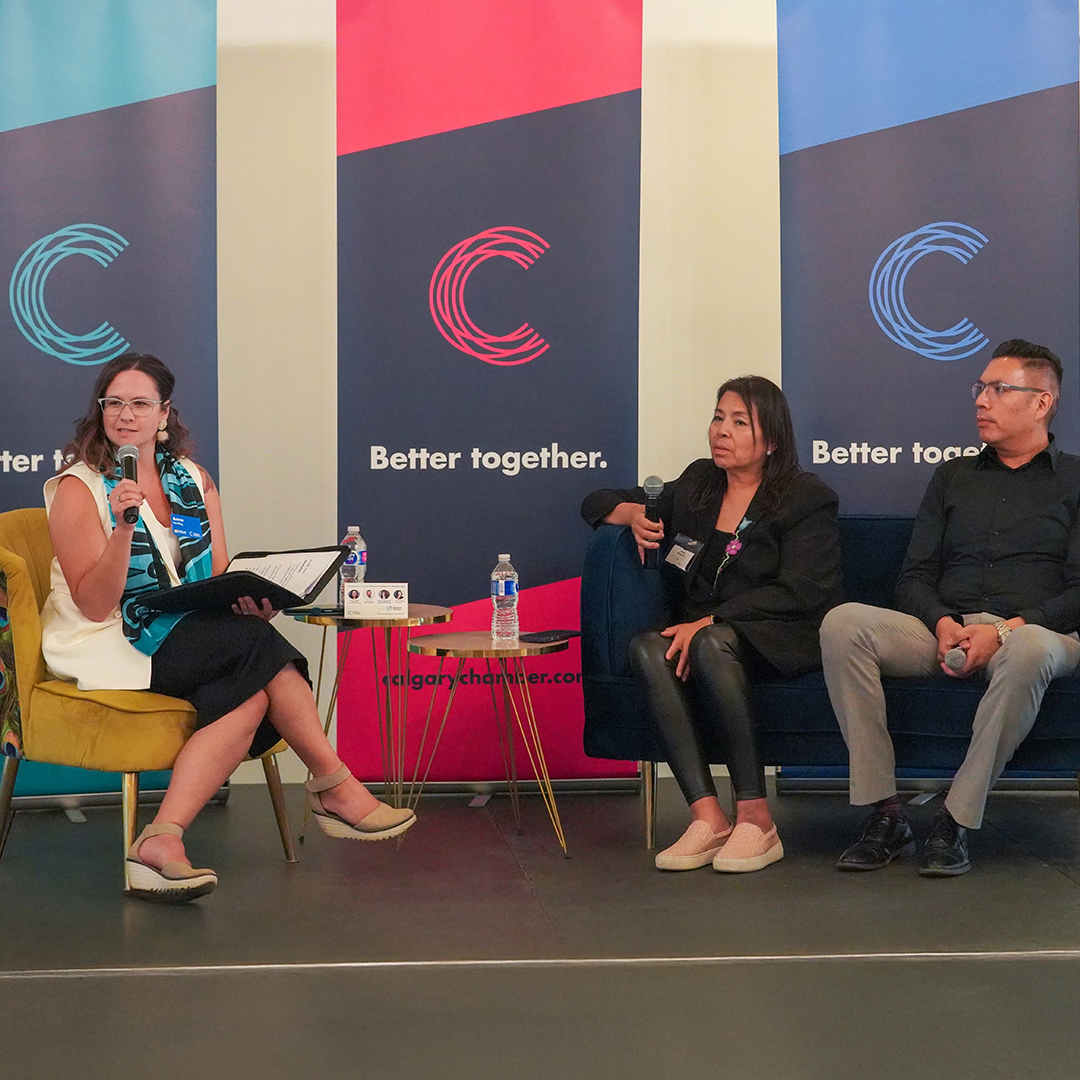
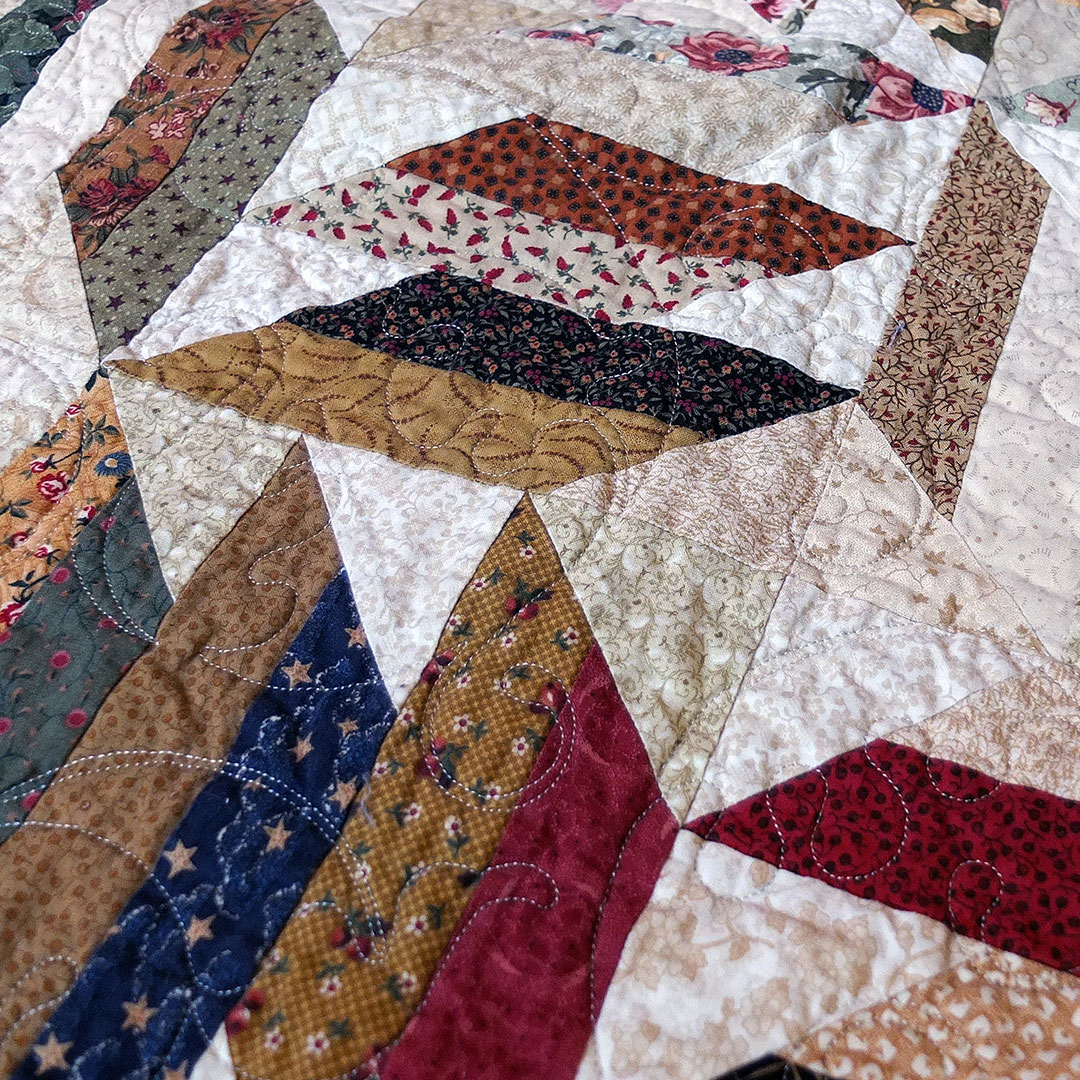
Fast-forward to 1979 when the Calgary Chamber of Commerce established the Aboriginal Opportunities Committee in an effort to advance reconciliation in the business community. This was the longest running group of its kind in Canada, bringing together Indigenous community members with the broader Chamber membership to create systemic change. Through various changes at our Chamber, including related to the COVID-19 pandemic, this committee was disbanded.
In recent years, the Calgary Chamber of Commerce has reignited its commitment to Truth and Reconciliation, vowing to bring a more consistent and intentional approach to our efforts. We formed a Staff Working Group with team members from all departments recognizing our work must be consistent and integrated into everything we do. We developed formal accountability for our economic reconciliation work under a member of our Executive Leadership Team to ensure consistency, intentionality and accountability at the highest levels of the organization.
The Calgary Chamber of Commerce staff and Board have participated in various initiatives to learn about our history and understand the role we each play in advancing truth and reconciliation, including the KAIROS Blanket Exercise, encouraging staff to pursue the University of Alberta’s Indigenous Canada course and sharing resources with our teams. We are committed to continuing to learn ensuring our efforts remain active and are never complacent.
In the past several years, the Calgary Chamber of Commerce has hosted several events, including Forums on National Indigenous Peoples Day on June 21 and shared resources with our members ahead of the National Day of Truth and Reconciliation on September 30. We have reintroduced our Indigenous Entrepreneur Award as part of our Small Business Week Awards and hosted networking events with urban Indigenous professionals.
We have also increased our focus on economic reconciliation in our policy work, advocating for systemic change that supports Indigenous entrepreneurs and businesses access capital, participate in procurement and increase grid connectivity.
But we are still in the early days of our journey.
The Calgary Chamber of Commerce is currently embarking on our work to develop a framework and key priorities for how we advance truth and reconciliation work, which is guided by our Indigenous Advisory Circle. We will have more to share in the coming months and welcome your thoughts and perspectives at policy@calgary-chamber.papercrane.ca.
Resources
‘Truth’ is an important part of the truth and reconciliation journey—and is the most important place to start. To learn more about Canada’s history, visit the following resources:
Calgary Foundation
Watch a short video from the Calgary Foundation to learn why land acknowledgements matter, and why recognizing the history of where we are gathered matters.
CBC
Watch Namwayut: we are all one, a short video by CBC on Truth and Reconciliation in Canada.
University of Alberta
Take the University of Alberta’s free online course ‘Indigenous Canada’ that explores the different histories and contemporary perspectives of Indigenous peoples living in Canada.
Government of Alberta
Read A Brief Introduction to Indigenous Peoples in Alberta from the Government of Alberta to learn about Alberta’s history.
National Centre for Truth and Reconciliation
Learn about the Truth and Reconciliation Commission of Canada: Calls to Action to understand Canada’s path forward and the role we each play.
Native Land
View an interactive map of where Indigenous territories, treaties and languages have been over time, and understand more about the history of wherever you call home. You can also find out if you live near a former Residential School site.
Calgary Foundation
Dive into Calgary Foundation’s Treaty 7 Ally Toolkit.
Canadian Race Relations Roundation
Read the Reconciliation Toolkit for Business Leaders, published by the Canadian Race Relations Foundation.
Explore some of our recent work in this area
October 24, 2024
Empowering Indigenous Entrepreneurs: Strategies for supporting small business success
June 27, 2024
National Indigenous Peoples Day Engagement Forum
September 25, 2023
Approaching Economic Reconciliation
June 28, 2023
Fostering Indigenous Inclusion and Economic Empowerment
June 21, 2022
National Indigenous Peoples Day
June 16, 2021
Reconciliation: A journey for Calgary businesses
Some of this content may be difficult or triggering. There are resources to support you.
The Indian Residential School Survivor 24-hour crisis line
If it matters to you, it matters to us
We are your champion at the table with government – let us know what’s impacting you and your business.
September 30
The National Day for Truth and Reconciliation
September 30 each year is observed as the National Day for Truth and Reconciliation. This day pays tribute to the children who did not make it back home, as well as to the survivors of residential schools and their families and communities. Publicly recognizing and reflecting on the tragic history and continuing effects of residential schools is an essential part of Truth and Reconciliation.
September 30 is also Orange Shirt Day, which is an Indigenous-led grassroots movement to highlight the lasting impacts of residential schools on individuals, families and communities, and to support the principle that “Every Child Matters.” The orange shirt symbolizes the cultural, personal and emotional loss endured by Indigenous children across generations.
On this day, Canadians are encouraged to wear orange to honour the thousands of survivors of residential schools.
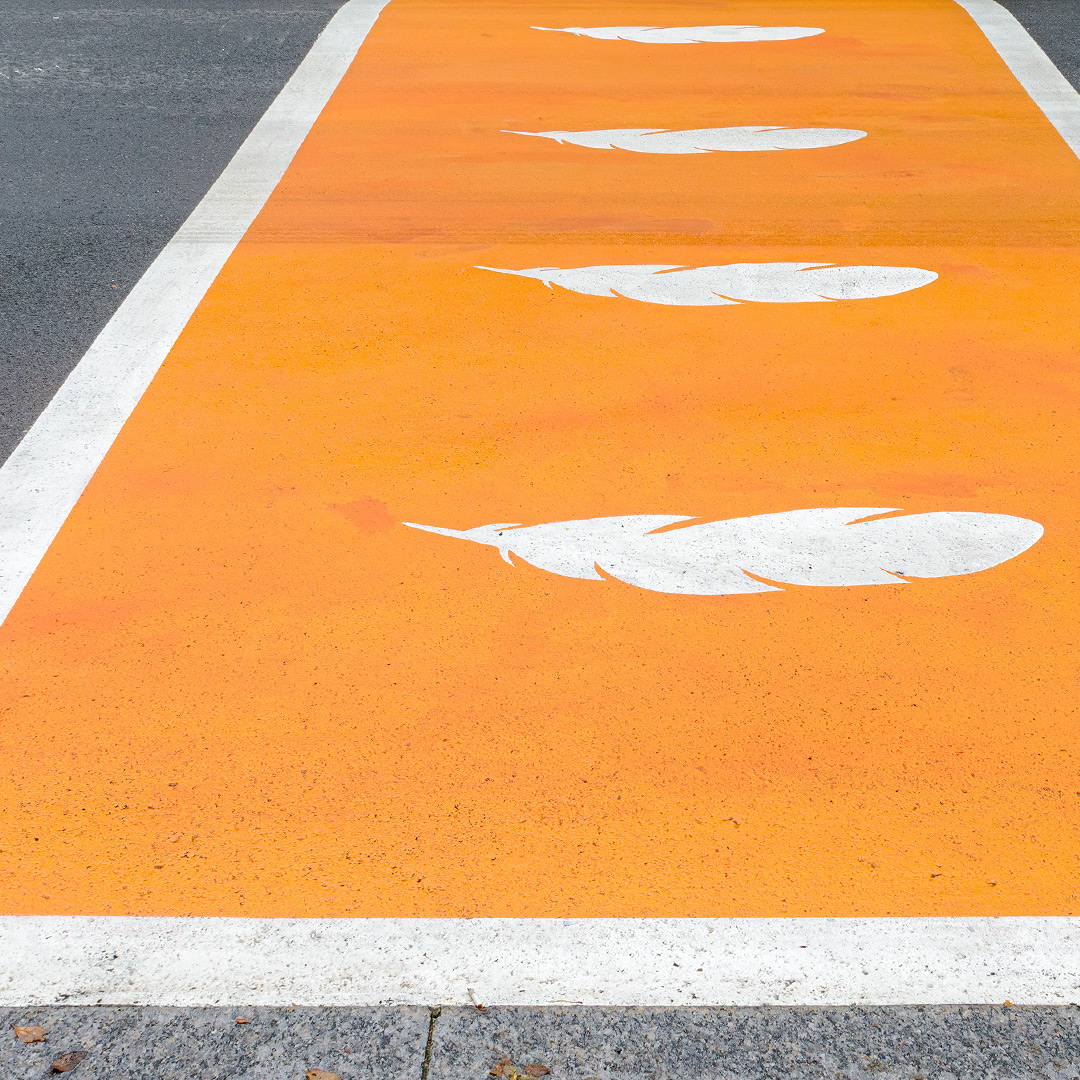
A chance to learn and reflect
National Day for Truth and Reconciliation Day is also an important time to learn and reflect. To learn more about the day, visit Orange Shirt Society, the City of Calgary, or the Canadian Center for Diversity and Inclusion—and to learn more about Truth and Reconciliation, visit the resources below.
- Participate in One Day’s Pay, which encourages people to give one day’s pay to support Indigenous projects, movements, organizations and nations
- Visit a regional Indigenous museums like Tsuut’ina Museum, Head-Smashed-In Buffalo Jump, or Writing-on-Stone Provincial Park
- Visit murals in downtown Calgary created by Indigenous artists as part of Calgary’s BUMP festival
- Participate in one of the 150 Acts of Reconciliation outlined here
